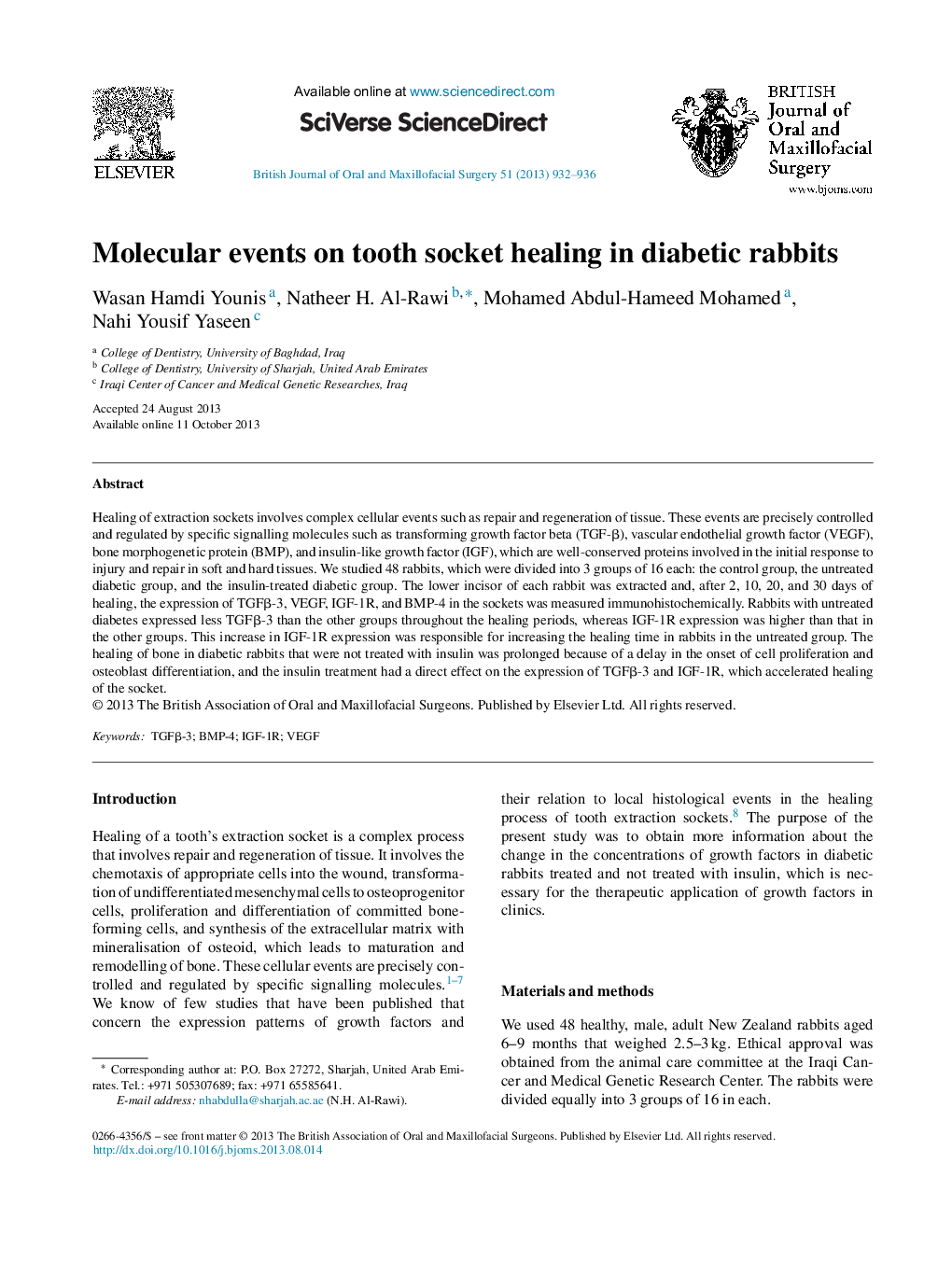| Article ID | Journal | Published Year | Pages | File Type |
|---|---|---|---|---|
| 3123710 | British Journal of Oral and Maxillofacial Surgery | 2013 | 5 Pages |
Healing of extraction sockets involves complex cellular events such as repair and regeneration of tissue. These events are precisely controlled and regulated by specific signalling molecules such as transforming growth factor beta (TGF-β), vascular endothelial growth factor (VEGF), bone morphogenetic protein (BMP), and insulin-like growth factor (IGF), which are well-conserved proteins involved in the initial response to injury and repair in soft and hard tissues. We studied 48 rabbits, which were divided into 3 groups of 16 each: the control group, the untreated diabetic group, and the insulin-treated diabetic group. The lower incisor of each rabbit was extracted and, after 2, 10, 20, and 30 days of healing, the expression of TGFβ-3, VEGF, IGF-1R, and BMP-4 in the sockets was measured immunohistochemically. Rabbits with untreated diabetes expressed less TGFβ-3 than the other groups throughout the healing periods, whereas IGF-1R expression was higher than that in the other groups. This increase in IGF-1R expression was responsible for increasing the healing time in rabbits in the untreated group. The healing of bone in diabetic rabbits that were not treated with insulin was prolonged because of a delay in the onset of cell proliferation and osteoblast differentiation, and the insulin treatment had a direct effect on the expression of TGFβ-3 and IGF-1R, which accelerated healing of the socket.
